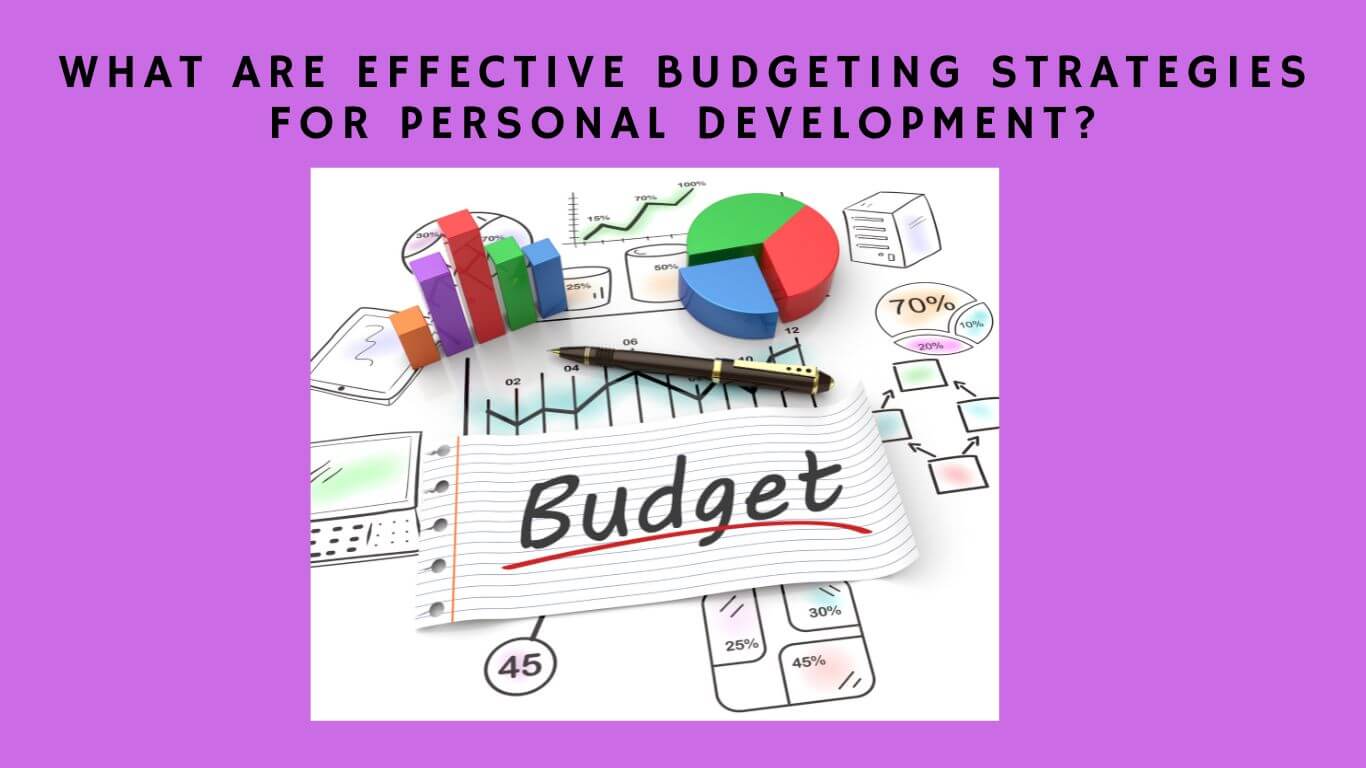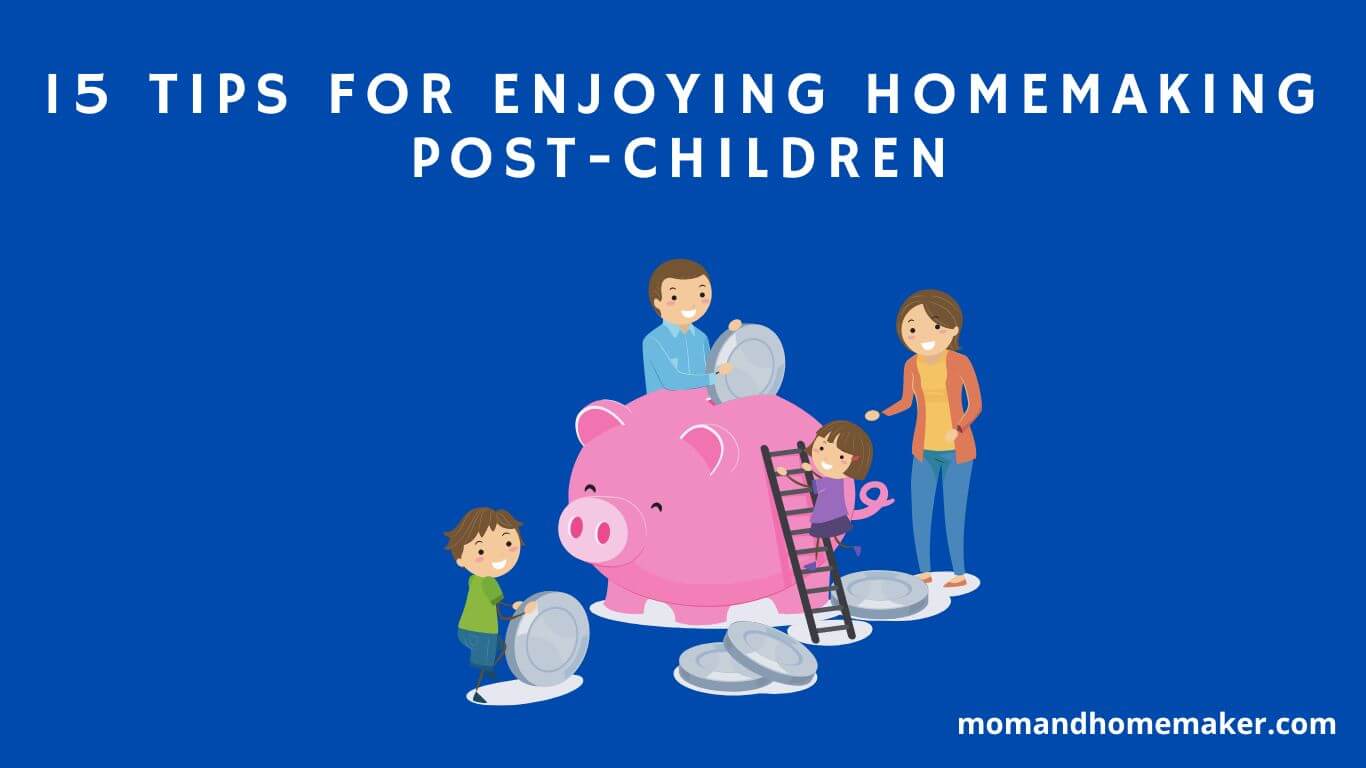Personal development is a lifelong journey that requires intentional planning and investment. One crucial aspect of this journey is managing your finances effectively. By adopting smart budgeting strategies, you can align your financial goals with your personal development goals, ensuring that you have the resources to invest in your growth and progress.
By setting clear goals, assessing your financial situation, and creating a realistic budget, you can take control of your personal growth and financial well-being. With the right mindset, education, and accountability, you can achieve your goals and live a life of gratitude and abundance.
Join me as I explore the strategies that will help you thrive on your personal development journey.

Set Clear Personal Development Goals
To effectively budget for personal development, set clear goals that align with your desired outcomes and aspirations. Clear goal setting is essential for effective planning and achieving personal growth. When setting your goals, ensure they’re specific, measurable, achievable, relevant, and time-bound (SMART). This will provide you with a clear roadmap and direction for your personal development journey.
Once you have established your goals, it’s crucial to track your progress regularly. By monitoring your advancements, you can identify areas where you’re excelling and areas that need improvement. Tracking progress allows you to stay motivated and make necessary adjustments to stay on track.
However, it’s important to acknowledge that obstacles may arise along the way.
Overcoming these obstacles is part of the personal development process. When faced with challenges, focus on finding solutions and maintaining a positive mindset. Remember, setbacks are opportunities for growth and learning.
Staying motivated throughout your personal development journey can be challenging, but it’s crucial for success. Find techniques that work for you, such as celebrating small wins, visualizing your success, or seeking support from like-minded individuals. By staying motivated, you’ll be more likely to persevere and achieve your personal development goals.
Assess Your Current Financial Situation
Assess your current financial situation to gain a clear understanding of your available resources for personal development. By evaluating where you stand financially, you can better plan and allocate your funds toward achieving your goals.
Start by assessing your progress toward your financial goals. Are you on track, or do you need to make adjustments? Take a look at your financial habits and identify any areas where you may be overspending or not prioritizing your goals. This self-reflection will help you identify any financial obstacles that may be preventing you from reaching your milestones. It’s important to be honest with yourself and address any challenges head-on.
Take stock of your income, expenses, and debt. Analyze your monthly budget and determine if there are any areas where you can cut back or reallocate funds towards personal development activities. Consider seeking professional advice or using financial tools to assist you in this process.
Determine Your Priorities
Evaluate your goals and decide which ones are the most important for your personal development journey. Determining your priorities is essential in creating an effective budgeting strategy. Here are three key steps to help you prioritize your goals and align them with your financial situation:
- Setting goals: Identify what you want to achieve in your personal development journey. Whether it’s improving your skills, furthering your education, or starting a new venture, having clear goals will provide you with a sense of direction.
- Financial assessment: Take a close look at your current financial situation. Evaluate your income, expenses, and debts to understand your financial capacity. This assessment will help you determine how much you can allocate towards your personal development goals.
- Creating a plan: Once you have a clear understanding of your goals and financial situation, create a budgeting plan. Allocate funds towards your priorities and ensure that your expenses align with your goals. Consider reducing spending in non-essential areas to free up more resources for personal development.
Create a Realistic Budget
One key step in creating a realistic budget for personal development is understanding your financial limitations and setting clear spending boundaries.
To create a realistic budget, start by identifying your financial goals. What are you trying to achieve? Do you want to save for a down payment on a house, pay off your student loans, or start a business?
Once you have a clear understanding of your goals, track your expenses for a few months to get an accurate picture of where your money is going. This will help you identify areas where you can cut back and save. Look for unnecessary expenses that you can eliminate or reduce. For example, you might consider cutting back on eating out or canceling unused subscriptions.
Another way to create a realistic budget is by finding ways to increase your income. This could involve picking up a side gig or finding ways to advance in your career.
Track Your Expenses
To effectively manage your personal development budget, regularly track your expenses to gain a clear understanding of where your money is going. Financial tracking allows you to evaluate your spending habits and identify areas where you can make adjustments to align with your savings goals. Here are three key steps to help you track your expenses effectively:
- Expense Categorization:
Start by creating categories for your expenses, such as housing, transportation, groceries, entertainment, and so on. This will help you organize your spending and see where your money is being allocated. - Mindful Purchasing:
Be mindful of your purchases and ask yourself if it aligns with your personal development goals. Before making a purchase, consider whether it’s a necessity or a want. By being mindful of your spending, you can avoid unnecessary expenses and direct your money towards activities or items that support your growth. - Savings Strategies:
Use your expense tracking to identify areas where you can cut back and save. Once you have a clear picture of your spending habits, evaluate where you can make adjustments. Look for opportunities to reduce expenses in non-essential categories and allocate those savings towards your personal development goals.
Cut Back on Non-Essential Spending
To effectively manage your personal development budget, you should consider reducing unnecessary expenses in order to allocate more funds toward your growth. It’s important to make smart spending choices and adopt saving strategies that will help you achieve your financial goals while still allowing for personal development.
One of the key principles of budgeting is financial discipline. By cutting back on non-essential spending, you can free up more money to invest in your personal growth. Start by identifying expenses that aren’t essential for your well-being or long-term goals. This could include dining out frequently, excessive shopping, or subscribing to unnecessary services.
To reduce unnecessary expenses, consider adopting frugal living tips. For example, try cooking at home instead of eating out, or find free or low-cost alternatives for entertainment. Another strategy is to set a monthly budget for discretionary spending and stick to it. This will help you prioritize your spending and avoid impulsive purchases.
Automate Savings and Investments
To effectively manage your personal development budget, it’s crucial to automate your savings and investments. By implementing automated savings and investment strategies, you can ensure that you consistently set aside money for your future goals without the need for constant manual effort.
Here are three reasons why you should consider financial automation:
- Consistency: Setting up automated savings and investment transfers allows you to establish a consistent habit of saving and investing. By automating these processes, you remove the temptation to spend the money elsewhere, ensuring that you consistently contribute towards your financial goals.
- Time-saving: Financial automation saves you time by eliminating the need for manual transfers and calculations. With automated savings and investment systems, your money is automatically deducted from your paycheck or checking account and directed toward your savings or investment accounts. This frees up your time to focus on other important aspects of your personal development.
- Reduced risk of impulse spending: By automating your savings and investments, you reduce the risk of impulse spending. Since the money is automatically transferred to your savings or investment accounts, it becomes less accessible for everyday expenses, making it easier to resist the urge to spend unnecessarily.
Implementing savings and investment automation can help you stay on track with your personal development budget and achieve your financial goals more efficiently.
Find Ways to Increase Your Income
Consider exploring additional sources of income to enhance your personal development budget. Increasing your income can provide you with more financial resources to invest in your personal growth and development.
One way to increase your income is to focus on increasing your skills. By continuously improving your skills and acquiring new ones, you can position yourself for better career opportunities and higher-paying jobs.
Another option is to explore side hustles or freelance work. These can be great ways to earn extra income while pursuing your personal development goals. Whether it’s offering your services as a graphic designer, writer, or consultant, leveraging your skills and expertise in the gig economy can provide you with additional income streams.
Passive income is another avenue to consider. This type of income requires an initial investment of time, effort, or money but can generate ongoing income with minimal effort. Examples include investing in rental properties, starting an online business, or creating and selling digital products.
Career advancement shouldn’t be overlooked. By focusing on advancing in your current job or seeking better-paying positions, you can significantly increase your income. Look for opportunities to take on additional responsibilities, acquire new certifications, or pursue higher education to enhance your qualifications and increase your earning potential.
Incorporating these strategies and exploring additional sources of income can help you boost your personal development budget and achieve your goals more effectively. Remember, the key is to align your income-generating activities with your personal growth aspirations.
Allocate Funds for Education or Training
Invest in your personal development by setting aside funds for education or training. Allocating a portion of your budget towards enhancing your knowledge and skills can lead to significant personal and professional growth. Here are three key reasons why investing in learning is a wise decision:
- Education Funding: By dedicating a specific amount of money towards education, you can ensure that you have the financial resources to pursue courses, workshops, or certifications that align with your interests and goals. This allocation demonstrates your commitment to continuous learning and self-improvement.
- Skill Development: Training expenses can be considered as an investment in yourself. By acquiring new skills or enhancing existing ones, you can become more competitive in your field and increase your chances of career advancement. Skill development not only benefits you professionally but also boosts your confidence and overall personal growth.
- Personal Growth Investments: Investing in your education and training is an investment in your future. It provides you with the tools and knowledge needed to overcome challenges, adapt to changing circumstances, and seize new opportunities. By continuously learning and upgrading your skills, you’re positioning yourself for long-term success and fulfillment.
Invest in Personal Growth Resources
Enhancing your personal growth through budgeting involves exploring various resources that can aid in your development. Investing in mentors, self-improvement workshops, online courses, books, and other resources can provide valuable insights and knowledge to help you grow personally and professionally.
To make the most of your budget, it is important to carefully consider which resources are worth investing in. Here is a table summarizing some key personal growth resources and their potential benefits:
| Resource | Benefits |
|---|---|
| Mentors | Guidance from experienced individuals who can offer valuable advice and support. |
| Self-improvement workshops | Opportunities to learn new skills, gain self-awareness, and connect with like-minded individuals. |
| Online courses | Flexible learning options to acquire new knowledge and advance your career. |
| Books and resources | Access to a wealth of information and perspectives on personal growth and development. |
By allocating a portion of your budget to these resources, you are actively investing in your personal growth. Remember to research and choose resources that align with your specific goals and interests, as this will maximize their impact on your development.
Investing in personal growth resources not only enhances your knowledge and skills but also allows you to connect with a community of individuals who share similar aspirations. By immersing yourself in these resources, you can foster a sense of belonging and continuously strive for self-improvement.
Prioritize Health and Wellness
To prioritize health and wellness in your personal development budget, focus on incorporating healthy habits and self-care practices. By investing in your physical and mental well-being, you can enhance your overall quality of life and achieve personal growth.
Here are three essential ways to prioritize health and wellness in your budget:
- Prioritize self-care: Allocate a portion of your budget for activities that promote self-care, such as massages, facials, or meditation classes. Taking time to relax and recharge is crucial for maintaining a healthy balance in your life.
- Invest in fitness: Set aside funds for a gym membership, fitness classes, or personal training sessions. Regular exercise not only improves physical health but also boosts mental clarity and reduces stress.
- Focus on mental health: Consider budgeting for therapy or counseling sessions, as well as mindfulness practices like yoga or meditation. Prioritizing your mental health can help you better manage stress, anxiety, and other challenges that may arise.
Budget for Travel and Experiences
Now, let’s delve into how you can budget for travel and experiences to further enrich your personal development journey. Budgeting for hobbies and saving for experiences is an important aspect of personal growth. It allows you to explore new places, meet different people, and broaden your horizons.
When it comes to travel, there are several budget-friendly options available. Consider exploring nearby destinations or taking advantage of off-season deals. Look for affordable travel options such as budget airlines, discounted accommodations, and public transportation. Plan your trips in advance to take advantage of early bird discounts and promotions.
Another way to make your adventures more budget-friendly is to prioritize experiences over material things. Instead of spending money on expensive souvenirs, focus on creating memories and immersing yourself in the local culture. Take advantage of free or low-cost activities such as hiking, visiting local markets, or attending cultural events.
Furthermore, exploring on a budget doesn’t mean compromising on the quality of your experiences. Research and plan your trips carefully, seeking out hidden gems and local recommendations. Consider alternative accommodations like hostels or vacation rentals. Be open to trying new things and stepping out of your comfort zone.
Save for Retirement and Future Opportunities
When planning your budget for personal development, it’s important to prioritize saving for retirement and future opportunities. While it may seem far off, retirement planning is crucial for ensuring financial stability and long-term savings. Here are three essential steps to help you save effectively:
- Start early and be consistent:
The earlier you begin saving for retirement, the more time your money has to grow. Consider setting up automatic contributions to a retirement account, such as a 401(k) or an individual retirement account (IRA). Consistency is key to achieving your retirement goals. - Diversify your investment strategies:
To maximize your returns and manage risk, diversify your investment portfolio. Consider a mix of stocks, bonds, and other assets that align with your risk tolerance and financial goals. Seek guidance from a financial advisor to choose the right investment options for you. - Plan for future opportunities:
Alongside retirement planning, it’s essential to save for future opportunities. Whether it’s starting a business, furthering your education, or pursuing a passion, having a separate savings account dedicated to these future endeavors can provide you with the financial freedom to seize opportunities as they arise.
Consider the Long-Term Impact of Your Financial Decisions
As you prioritize saving for retirement and future opportunities, it’s crucial to consider the long-term impact of your financial decisions. Effective financial decision making requires a focus on long term planning and understanding the potential financial impact of your choices.
Every financial decision you make today can have future consequences that impact your overall financial well-being.
When making financial decisions, it’s important to consider the potential long-term consequences. Will this decision align with your long-term goals? Will it have a positive or negative impact on your financial future? By considering the long-term impact, you can make more strategic spending choices and prioritize investments that will benefit you in the long run.
One way to ensure that you’re making financially responsible decisions is to create a budget that takes into account your long-term goals and expenses. This will help you allocate your resources wisely and avoid unnecessary expenses that may hinder your long-term financial stability.
Embrace Minimalism and Reduce Materialistic Spending
To effectively budget for personal development, embrace minimalism and prioritize reducing materialistic spending. Adopting a minimalist lifestyle can have a profound impact on your financial well-being and overall happiness. By practicing mindful spending and focusing on experiences rather than material possessions, you can achieve financial freedom and a greater sense of fulfillment.
Here are three ways embracing minimalism and reducing materialistic spending can benefit your personal development:
- Break free from consumerism: Consumerism promotes the idea that buying more things equates to happiness. However, this mindset often leads to excessive spending, debt, and a constant desire for more. By embracing minimalism, you can challenge this notion and find contentment in what truly matters, such as relationships, personal growth, and experiences.
- Cultivate mindful spending habits: Instead of mindlessly buying things you don’t need, practice mindful spending. Before making a purchase, ask yourself if it aligns with your values and if it will truly bring you long-term satisfaction. By being intentional with your spending, you can allocate your resources towards personal development activities that truly enrich your life.
- Focus on experiences over material possessions: Research consistently shows that experiences bring more lasting happiness than material possessions. By reducing materialistic spending, you can redirect your resources towards meaningful experiences like travel, education, and personal growth activities. These experiences not only provide enjoyment but also contribute to your personal development and sense of fulfillment.
Adopt a Mindset of Gratitude and Abundance
Develop an attitude of gratitude and abundance to enhance your budgeting strategies for personal development. By shifting your mindset towards gratitude and adopting an abundance mindset, you can transform the way you approach budgeting and ultimately improve your overall financial well-being.
Practicing gratitude is a powerful tool that can help you cultivate a positive mindset and shift your focus from what you lack to what you have. This mindset shift can have a profound impact on your budgeting strategies, as it allows you to appreciate the resources and opportunities available to you. By acknowledging and being grateful for what you already have, you can avoid unnecessary spending and make more intentional choices with your money.
To help you develop an abundance mindset and practice gratitude, consider incorporating the following strategies into your daily routine:
| Gratitude Practice | Abundance Mindset |
|---|---|
| Keep a gratitude journal and write down three things you are grateful for each day. | Focus on the abundance that already exists in your life, such as relationships, skills, and experiences. |
| Express gratitude to others by sending thank-you notes or expressing appreciation verbally. | Surround yourself with positive influences, such as books, podcasts, or people who inspire you to think positively and embrace abundance. |
Seek Financial Education and Guidance
To enhance your budgeting strategies for personal development, consider seeking financial education and guidance from professionals. This will help you gain the necessary knowledge and skills to effectively manage your finances and make informed decisions. Here are three ways in which seeking financial education and guidance can benefit you:
- Increase Financial Literacy: By seeking financial education, you can improve your understanding of various financial concepts, such as budgeting, saving, investing, and debt management. This knowledge will empower you to make better financial choices and avoid common pitfalls.
- Get Professional Advice: Consulting with financial professionals, such as financial planners or advisors, can provide you with personalized guidance tailored to your specific financial situation and goals. They can help you create a comprehensive financial plan, set realistic goals, and develop strategies to achieve them.
- Utilize Online Resources and Budgeting Apps: There are numerous online resources and budgeting apps available that can assist you in managing your finances effectively. These tools can help you track your expenses, create budgets, set financial goals, and monitor your progress over time. They provide convenience and accessibility, allowing you to take control of your finances anytime and anywhere.
Stay Accountable to Your Budgeting Plan
Hold yourself accountable to your budgeting plan to ensure financial success and personal development. Staying accountable to your budget is crucial for achieving your financial goals and creating a secure future. Here are some effective ways to stay accountable and make the most of your budgeting plan.
Track your expenses diligently. Keep a record of all your spending, whether it’s through budgeting apps, spreadsheets, or a simple notebook. This will help you identify any unnecessary expenses and make adjustments accordingly. By tracking your expenses, you can stay on top of your finances and make informed decisions.
Also, reduce unnecessary spending. Take a close look at your expenses and identify areas where you can cut back. It could be eating out less, canceling subscriptions you no longer use, or finding more affordable alternatives for certain products or services. By reducing your spending, you’ll have more money to allocate towards your financial goals.
Consider ways to increase your income. Look for opportunities to earn extra money, such as taking on freelance work, starting a side business, or investing in passive income streams. Increasing your income won’t only help you meet your financial goals faster but also provide a sense of security and achievement.
Regularly Review and Adjust Your Budget
Stay proactive with your budget by regularly reviewing and adjusting it to ensure you’re on track to meet your financial goals. Here are three important steps to help you effectively review and adjust your budget:
- Review frequency: Set a specific schedule for reviewing your budget. This could be monthly, quarterly, or annually, depending on your financial situation and goals. Regular reviews will allow you to stay on top of any changes in your income or expenses and make necessary adjustments to keep your budget on track.
- Budget adjustments: During your review, carefully analyze your income and expenses to identify areas where adjustments may be needed. Look for opportunities to cut back on unnecessary expenses or find ways to increase your income. Adjust your budget accordingly to reflect these changes and ensure that it accurately reflects your current financial situation.
- Financial check-ins: In addition to regular budget reviews, it’s important to have periodic financial check-ins. These check-ins involve taking a closer look at your financial goals and progress, evaluating the effectiveness of your budgeting strategies, and making any necessary changes to stay on track. These check-ins will help you stay accountable to your goals and make any adjustments needed to achieve them.
Conclusion
By setting clear goals, assessing your financial situation, and determining priorities, you can effectively budget for personal development.
Creating a realistic budget, tracking expenses, and adopting a mindset of gratitude are also key strategies for successful budgeting.
Seeking financial education, staying accountable, and regularly reviewing and adjusting your budget are additional steps that can help you achieve your personal development goals while maintaining financial stability and control.
By following these strategies, you can take charge of your finances and invest in yourself for a brighter future.













